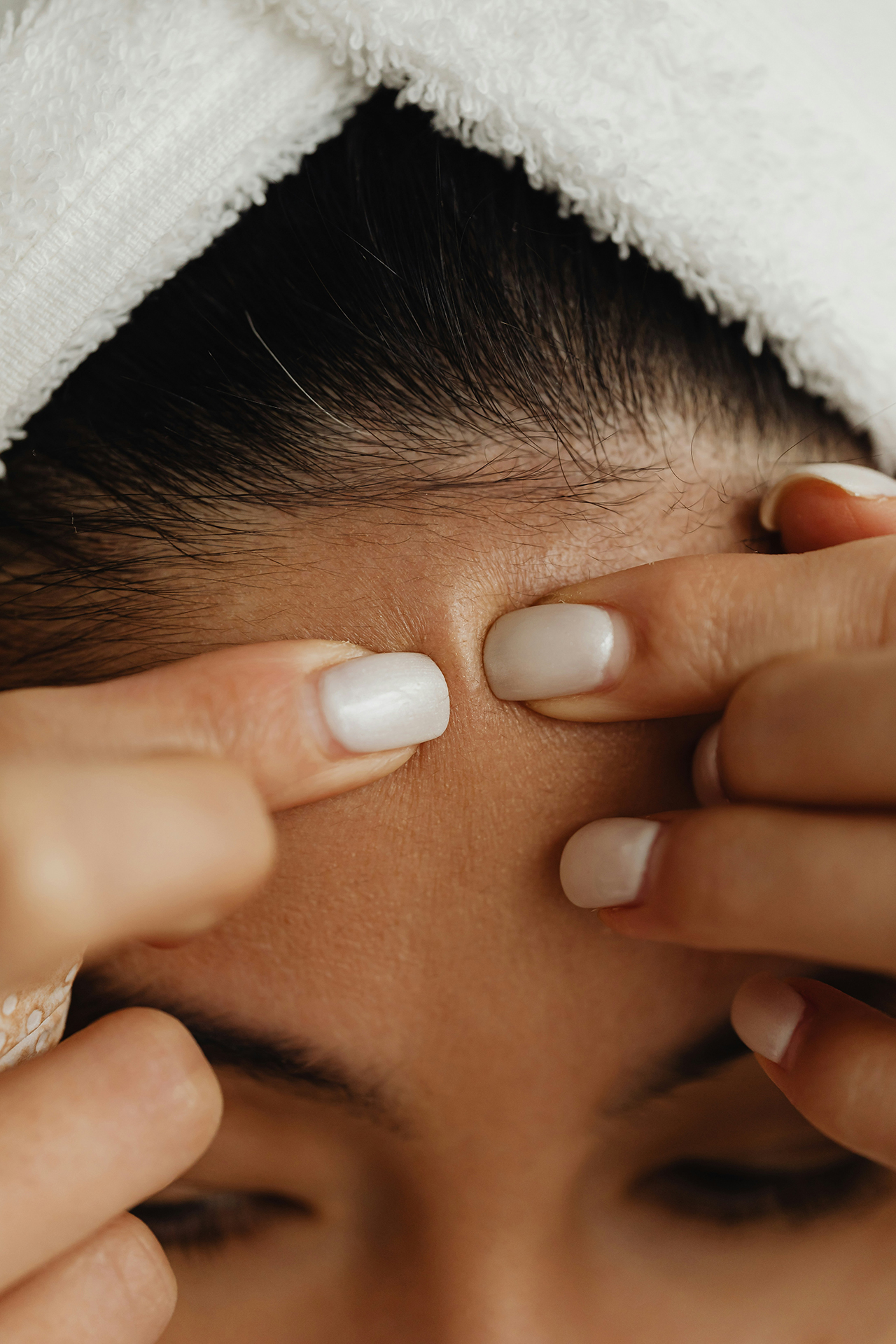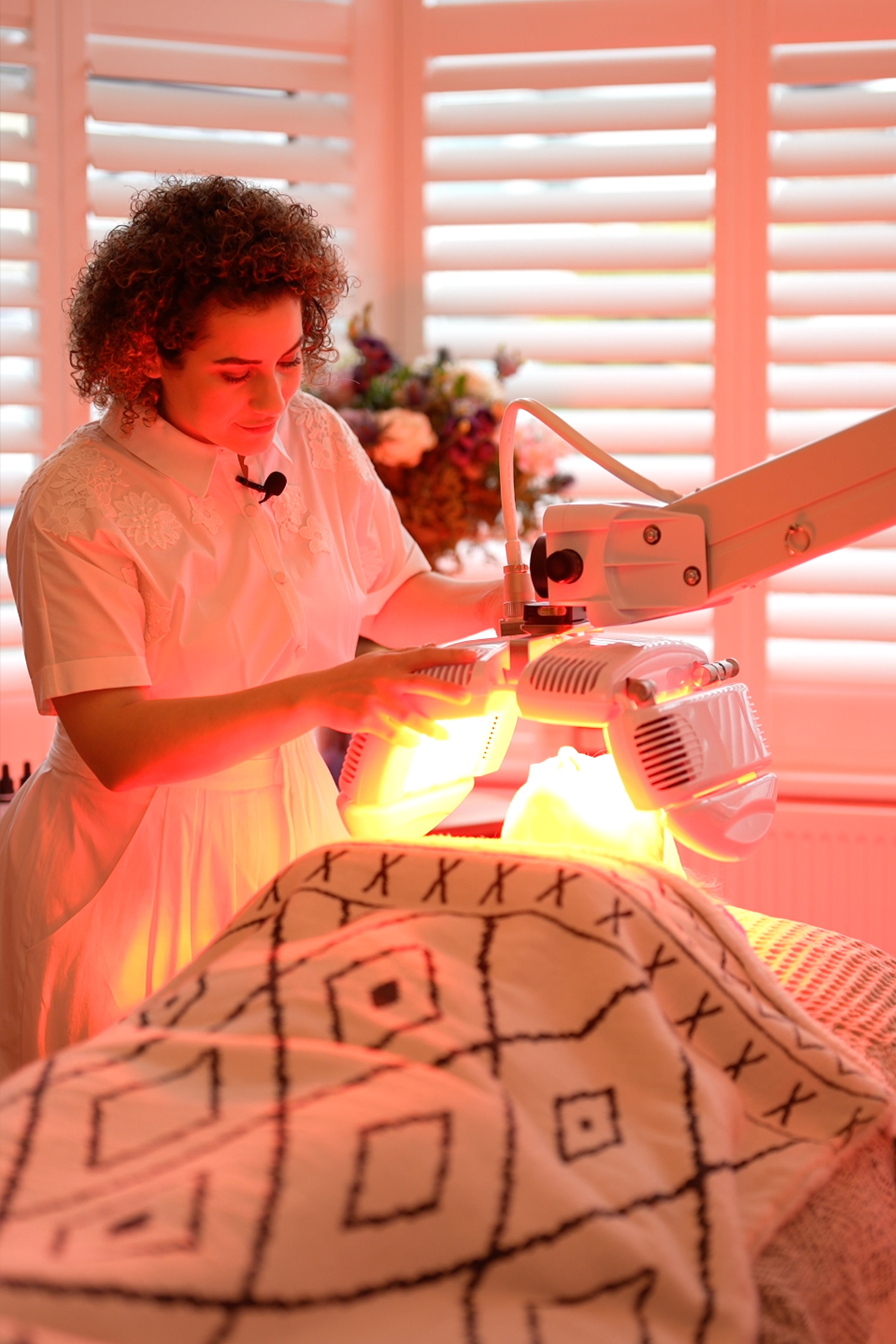
My chat with Wholetalk Magazine
Can you give me a little bio of you, what you do/ your background/ expertise?
I am a skincare consultant working from my London clinic offering bespoke consultations and nurturing treatments to improve the health and visual appearance of skin. I am inspired by the power of elemental energies and seek to bring calm and wellbeing to my clients via these methods.
I believe beauty should be redefined, not as skin deep but soul deep. I believe beauty does not equal youth. Neither does it come from the lack of wrinkles or a ‘perfect’ complexion. I believe beauty comes from within, from our presence, our wellness and from the youthfulness we exude by being our true selves. I take every person who reaches out to me as an opportunity help them on their journey to reimagine who they think they are and who they think they can become to feel more beautiful. The only path to healing yourself right now is finding the unique beauty within you.
Do you think we need to take care of our skin the same way throughout the year or adapt to the seasons?
A change in season can bring a skin routine update. In the same way, we wear different apparel for each season, it’s also important that we use different skincare products. A change in season almost always means a change in environmental conditions- everything from a spike in humidity levels, to an increase in temperature, can impact our ability to maintain healthy skin all year round. That’s why it’s critical to adjust our skincare routine throughout the year to help adapt to these external influences. The transitional period between the seasons can be the key time to add or swap products in our routine and opt for beneficial skincare products that are actually compatible with both our skin type and the season we’re in.
Our skin is the most visible organ in the miraculous system of our bodies and one of the largest too, yet, it is sometimes the most overlooked and misunderstood organs of the human body. When we think of skin, the epidermis tends to get attention, and perhaps appropriately: the term “only skin deep” reflects this superficial quality. This is not to say the epidermis is not critical… it definitely is! This layer of desiccated cells provides a protective barrier against many external insults. The skin is a multi-layered system that provides a critical array of functions to allow for human life to occur. It is an envelope of 800,000 neutrons, 11 metres of nerves, and about 200 sensory receptors on 1cm2 of skin and the hands and face are among the most innervated parts of the body.
Whilst we welcome the sunshine and Vitamin D boost of summer, the warmer months can impact our skin. In summer, the skin and the body become more dehydrated as the body temperature rises and the metabolic processes increase. This means our skin is metabolising faster and it needs ample water to function at its best. We sweat more in the summer months too, so we need to replenish this water loss consistently.
The tips below will help you enjoy the sunshine with skin health in mind:
- Sweat and increased sebum production (which can mix with dirt and block the pores of the skin) can result in breakouts and blemishes. It can be good to adopt a double cleanse routine and the use of a super soft organic face cloth (like CloudCloth).
- SPF should be used all year round as UV damage is not just prevalent in the warmer months. When the sun is in full blast SPF should be reapplied more regularly- every couple of hours to ensure its efficacy. Further protect your skin from sun damage in the summer by covering up and wearing longer layers.
- Be conscious of using electrical devices to adjust your temperature – they can dry the air causing your skin to dry out and dehydrate.
- Whilst an icy plunge on a hot day may sound great be aware of the impact of sudden temperature changes on your skin. These extremes can cause damage to the skin barrier which in turn impacts the skin’s ability to retain moisture.
- Drink lots of water – keep your skin hydrated from the inside out … amp it up by eating hydrating foods like cucumber and watermelon as well as drinking more herbal teas.
- The skin becomes dehydrated because water content evaporates. Oils are great for plumping and preserving water in the skin so applying one every day preserves the water in the skin.
- Dermalux LED is great as it will deeply hydrate the skin and penetrates much deeper than what your everyday products can.
- Use a brightening overnight mask. At night, the skin’s main function is to repair, so this is the perfect time to apply a mask before bed. I love PH Formula VITA C Bright Overnight Mask.
- Your skin does not end at your neck… do not forget your feet. Use a scrub to remove the excess mature skin cells. Moisturize your feet, and don’t forget to apply sunscreen lotion on them.
What are your tips for healthy and glowing skin in the summertime?
While what you put on your skin is certainly important, the journey to beautiful skin begins within. Your body is constantly talking to you through your skin.
Below are a few do’s and don’ts for encouraging healthy, glowing skin during the summer months:
DON’T
- Cut down your resting time. Your body needs time to repair itself – try to give yourself enough time to rest. During the summer months, the days are longer, most of us tend to be active for longer, and being exposed to the sun longer can lead to dullness.
- Overload your makeup, go minimal. Your skin will thank you for it especially when the weather is hot and humid. If you cannot do without any makeup switch foundation for a tinted moisturiser.
- Use physical facial scrubs, as they can be too abrasive causing micro-injuries – not great especially when we are exposed to hot temperatures, the ocean, and swimming pools. In addition, be careful of active exfoliating ingredients like alpha- and beta-hydroxy acids that can make skin more sensitive to the sun and external aggressors.
DO
- Consume lots of fruits and vegetables. The right natural foods have a positive effect on our entire bodies, including the skin. Your skin reacts to what you are putting in your body, so the better you are eating, the better your skin will look. Adequate sources of healthy protein, for example, are essential for the amino acids that your body uses to produce collagen. Fruits, vegetables, and herbs all contain important micronutrients that help your body perform its most important functions. Applying antioxidants topically is not enough. To maintain radiant skin, you need to nourish it accordingly. A diet rich in antioxidants helps promote healing, among other health benefits.
- Get enough exercise. Exercise is important for maintaining healthy skin during summer as physical activity improves blood flow, which means your skin cells get more oxygen. Thus, your body heals any tissue damage (like a sunburn) more easily.
- Take extra care of your eyes. The eye area is extremely sensitive, ensure that you have your sunglasses with you to prevent wrinkle formation. Also, ensure to massage your eye area with an eye cream every morning and evening to keep your muscles relaxed and the skin hydrated.
What are your thoughts on SPF – mineral or chemical? It’s such a controversial subject I often find myself in a loophole when I research.
The words “natural” versus “chemical” are used to imply that some sunscreens are not chemicals and that a natural or mineral product might be preferable because it acts as a physical barrier that bends or reflects light compared to chemical sunscreens that absorb light. It is repeated that “physical or barrier” sunscreens reflect or block UV radiation and “chemical” products absorb harmful rays, however, there are points to take into consideration. Photoprotection from scattering or reflection of light occurs only if a very thick optical barrier prevents light from passing through to the skin, similar to a thick coat of paint (not seen in commercially available sunscreens). All mineral or insoluble UV filters act as semi-conductors and absorb photons with electron shifts to a different valence band, so a harmful wavelength is converted to a less harmful or innocuous wavelength. My bestselling SPF (Ava Isa sun-e-serum) is formulated without small molecular weight soluble organic filters that reach blood and tissue. The mineral filters zinc oxide and titanium dioxide are still chemicals- albeit inorganic ones made by a geologic system (ie. Mother Earth) hence the tendency to think of them as natural. Mineral filters are now so processed, highly refined, milled, coated, etc. that although they are really “naturally derived” they are so altered that they are semi-synthetic. With these facts in mind, the only accurate classification of UV filters is soluble versus insoluble and not natural versus chemical. Both types mostly act by absorbing photons. Adequate filter levels are another important criteria to ensure sufficient UVA protection and truly broad spectrum protection. Zinc oxide is a safe and effective UVA filter widely available. In the right concentrations, mineral products are the safest sunscreens for humans and the environment and are the most effective in preventing sunburn, skin cancer, and photoaging.
Key foods/nutrition for healthy skin? Things to avoid?
Up your intake of:
PARSLEY
It is rich in Vitamin C (a vitamin that the skin loves!), which can help the skin to produce collagen. It also contains Vitamin K – good to reduce dark circles under the eyes.
LYCOPENE-RICH TOMATO PASTE
A daily dose of 16 milligrams of lycopene-rich tomato paste was found to reduce mitochondrial DNA and the reddening of the skin after exposure to UV light.
ELECTROLYTES
Blood vessels supply our skin with electrolytes from the food we eat and the water we drink. Low levels of potassium and sodium electrolytes makes our skin vulnerable to dryness and dehydration. Calcium and potassium promote a strong epidermal barrier, as well as cell regeneration. Electrolytes also work to support your nervous system, muscles, and brain performance. Not to mention, they play a vital role in hydrating our cells!
Limit your intake of:
MANGOES
They have a natural heat that can cause blemishes and raise the temperature of the body, producing thermogenesis. They are rich in phytic acid, which impairs iron, zinc, and calcium and may promote mineral deficiencies. The solution to leaching out the access phytic acid and reducing its thermogenic properties before consuming, making them less heat generating, is by putting the mango in water for 30mins.
SUGAR
Limit sugar overall and be weary of it in sweeter drinks (alcoholic or not)! Excess sugar in our bloodstream can cause glycation – sugar levels in the bloodstream spike beyond what our insulin can handle affecting the part of our skin that keeps it ‘springy’ – collagen and elastin. When these two proteins link with sugars they become weaker promoting the signs of ageing.
SHRIMP, CRAB, LOBSTER, SEAWEED & SPINACH
They are naturally high in iodine and a diet with too much of this element can lead to blemishes (based on accumulated iodine over time). If you are blemish prone consume these foods no more than a couple of times a month.
Any particular supplements that you would suggest using in the summer?
VITAMIN C & GLUTATHIONE
Vitamin C has antioxidant properties and the ability to regenerate other antioxidants, such as vitamin E, giving added protection to the skin. Glutathione, known as the “master antioxidant” can help the body fight oxidative stress. It is found in every cell and is critical to preserving cellular integrity and essential for optimal health. When vitamin C gets oxidized, glutathione can recycle that vitamin C molecule back into its active form, and together, they form a more effective antioxidant barrier than either one of them separately.
PQQ & COQ10
Together can promote the spontaneous production of new mitochondria. Mitochondria are known as the powerhouses of human cells as they create adenosine triphosphate (ATP) which is the main source of energy in humans.
You can purchase a digital or printed copy of the Summer 2022 Wholetalk magazine from the link below.













